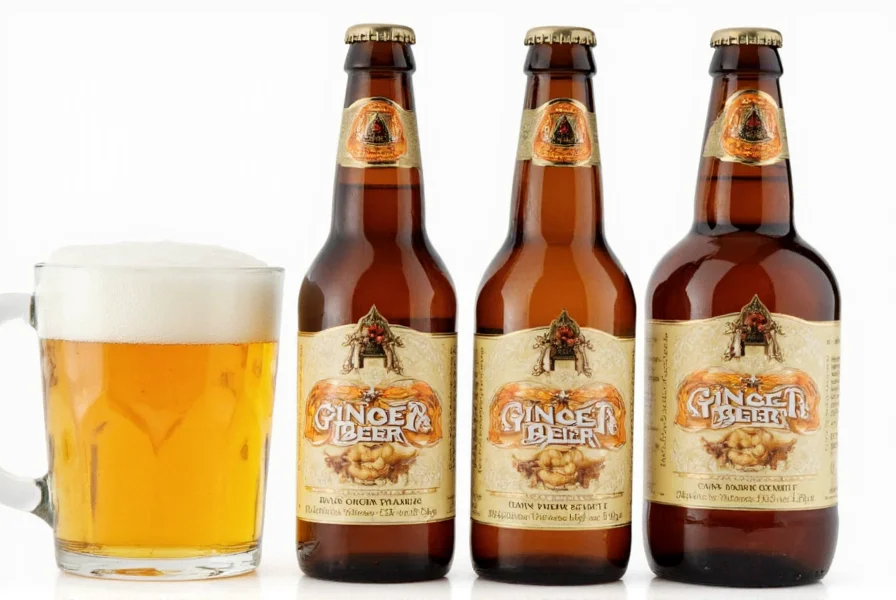Ginger beer, whether alcoholic or non-alcoholic, has a finite shelf life that depends on several factors including production method, ingredients, and storage conditions. Understanding expiration timelines helps prevent waste and ensures you enjoy this spicy beverage at its best quality.
Understanding Ginger Beer Expiration Dates
Most commercially bottled ginger beer displays one of three date labels:
- Best by date - Indicates peak quality period (typically 6-12 months from production)
- Use by date - Safety-focused expiration for perishable ingredients
- Expiration date - Strict deadline for consumption
These dates assume unopened bottles stored in cool, dark conditions. The actual shelf life varies significantly between brands and production methods. Artisanal and small-batch ginger beers often have shorter shelf lives than mass-produced varieties due to fewer preservatives.
Factors Affecting Ginger Beer Shelf Life
Several elements determine how long your ginger beer remains fresh:
| Factor | Impact on Shelf Life |
|---|---|
| Alcohol content | Alcoholic versions (above 0.5%) last longer due to natural preservation |
| Sugar content | Higher sugar acts as preservative but encourages fermentation |
| Preservatives | Sulfites and other additives extend shelf life significantly |
| Container type | Dark glass bottles protect better than clear containers |
| Storage temperature | Cool, consistent temperatures prevent premature spoilage |
Homemade vs. Commercial Ginger Beer Expiration
The shelf life difference between homemade and store-bought ginger beer is substantial:
Homemade ginger beer typically lasts only 1-3 weeks refrigerated due to active fermentation cultures and lack of preservatives. The ongoing fermentation process continues to produce carbonation and alcohol, which can eventually lead to bottle pressure buildup.
Commercial ginger beer benefits from pasteurization, preservatives, and sterile bottling processes that extend shelf life to 6-12 months unopened. Major brands like Fever-Tree, Bundaberg, and Q Mixers provide specific expiration guidance on their packaging.
How to Store Ginger Beer Properly
Maximize your ginger beer's shelf life with these storage techniques:
- Store unopened bottles upright in a cool, dark place away from temperature fluctuations
- Maintain consistent storage temperature below 70°F (21°C)
- Refrigerate after opening and consume within 3-7 days
- Keep bottles tightly sealed when not in use
- Avoid exposure to direct sunlight which degrades flavor compounds
For opened bottles, consider transferring to smaller airtight containers to reduce oxygen exposure. Carbonation dissipates quickly once opened, affecting both flavor and preservation.
Signs Your Ginger Beer Has Gone Bad
Before consuming ginger beer past its prime, check for these spoilage indicators:
- Visual changes - Cloudiness, sediment, or mold growth
- Smell alterations - Vinegary, sour, or unpleasant odors
- Carbonation loss - Flat or overly fizzy texture
- Flavor deterioration - Sour, bitter, or off-tastes
- Container issues - Bulging caps or excessive pressure
While expired ginger beer rarely causes food poisoning, it will lose its characteristic spicy flavor and develop unpleasant tastes. Consuming significantly expired ginger beer might cause mild digestive discomfort but generally poses minimal health risks.
Extending Ginger Beer Freshness
For those who enjoy ginger beer regularly, consider these freshness-preserving techniques:
- Transfer opened bottles to smaller containers to minimize air exposure
- Use specialized bottle stoppers designed for carbonated beverages
- Store in the coldest part of your refrigerator (typically the back)
- Avoid repeatedly warming and cooling the beverage
- Consider freezing small portions for cooking applications
Remember that ginger beer's volatile essential oils and ginger compounds degrade over time, diminishing both flavor complexity and potential health benefits associated with fresh ginger.
Frequently Asked Questions
How long does opened ginger beer last in the refrigerator?
Opened ginger beer typically remains fresh for 3-7 days when properly refrigerated with a tight seal. The carbonation dissipates quickly after opening, and flavor compounds degrade within this timeframe. For best results, transfer to a smaller airtight container to minimize air exposure.
Can you drink ginger beer after the expiration date?
Yes, you can often drink ginger beer shortly after the expiration date if stored properly and shows no signs of spoilage. Commercial ginger beer may remain safe for 1-2 months past the date, though flavor quality diminishes. Always check for off smells, unusual cloudiness, or mold before consuming expired ginger beer.
Does alcoholic ginger beer expire differently than non-alcoholic?
Yes, alcoholic ginger beer (typically containing 0.5% or more alcohol) generally has a longer shelf life than non-alcoholic varieties. The alcohol content acts as a natural preservative, extending freshness by several months. Most commercial alcoholic ginger beers remain stable for 9-12 months unopened, while non-alcoholic versions typically last 6-8 months.
Why does my ginger beer taste flat?
Flat ginger beer usually indicates either improper storage, expiration, or inadequate sealing after opening. Carbonation dissipates quickly when exposed to air. If unopened bottles taste flat, they may have been stored in warm conditions causing premature carbonation loss. For opened bottles, transfer to a smaller airtight container immediately after pouring to maintain carbonation.
Can expired ginger beer make you sick?
Expired ginger beer rarely causes serious illness but may lead to mild digestive discomfort if consumed well past its prime. The primary risk comes from significant spoilage showing visible mold, extreme cloudiness, or foul odors. Commercially produced ginger beer with preservatives poses minimal health risks even when expired, though flavor quality deteriorates substantially.











 浙公网安备
33010002000092号
浙公网安备
33010002000092号 浙B2-20120091-4
浙B2-20120091-4